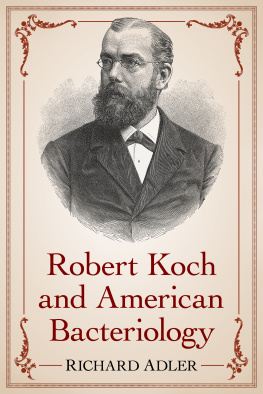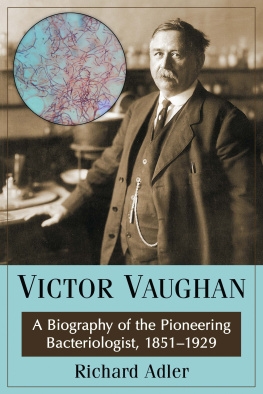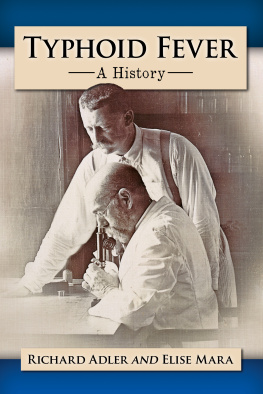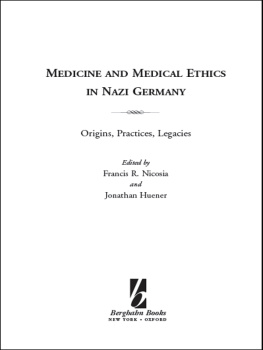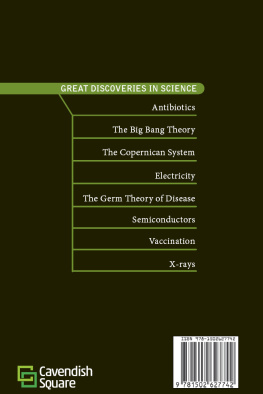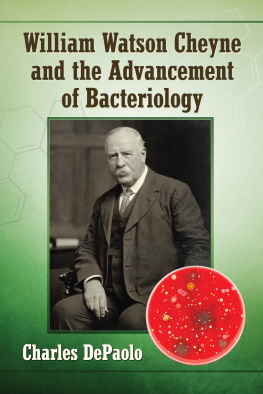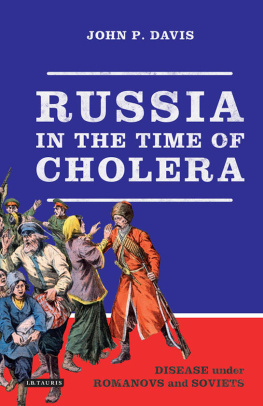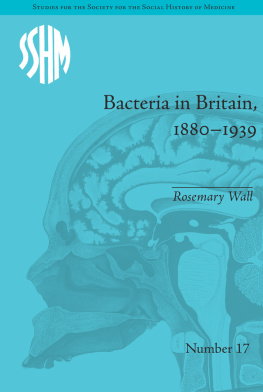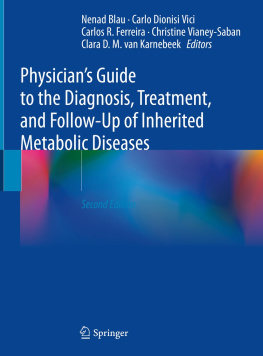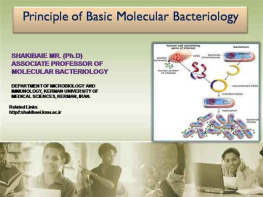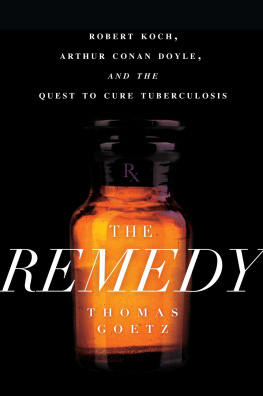Also by RICHARD ADLER
AND FROM MCFARLAND
Victor Vaughan: A Biography of the Pioneering Bacteriologist, 18511929 (2015)
Cholera in Detroit: A History (2013)
Mack, McGraw and the 1913 Baseball Season (2008)
BY RICHARD ADLER AND ELISE MARA
Typhoid Fever: A History (2016)
Robert Koch and American Bacteriology
Richard Adler

McFarland & Company, Inc., Publishers
Jefferson, North Carolina
LIBRARY OF CONGRESS CATALOGUING DATA ARE AVAILABLE
BRITISH LIBRARY CATALOGUING DATA ARE AVAILABLE
e-ISBN: 978-1-4766-2705-2
2016 Richard Adler. All rights reserved
No part of this book may be reproduced or transmitted in any form or by any means, electronic or mechanical, including photocopying or recording, or by any information storage and retrieval system, without permission in writing from the publisher.
Front cover illustration of Robert Koch 2016 iStock
McFarland & Company, Inc., Publishers
Box 611, Jefferson, North Carolina 28640
www.mcfarlandpub.com
Preface
My book Victor Vaughan: A Biography of the Pioneering Bacteriologist (2015) told how Vaughan, shortly to be appointed dean of the medical school in Ann Arbor, and a colleague and student, Frederick Novy, traveled to Germany during the 1880s for training under the auspices of Robert Koch in the then nascent field of bacteriology. That Vaughan and Novy went to Germany for developing such expertise, rather than receiving training in laboratories closer to Michigan where they lived and worked, was not unusual for the times. Despite the inconvenience, and cost, numerous physicians and bacteriologiststhe two fields, as a rule, being found within the same individualrecognized the training they would receive in German laboratories far exceeded anything they were likely to obtain in the United States. This was certainly the case for bacteriology; this was equally true in nearly all fields of medicine. For that reason, this book can be viewed as a prequel to the Vaughan biography, a description of Kochs research and laboratory and the attraction these had for those American students interested in learning about this newly developing field.
The history of medicine is among my professional interests, and in reading over the years the biographies of many of the American pioneers in that field, I was struck by how common such training in the German school of thought had become by the 1880s. The same tradition of European study had, in fact, developed much earlier in that century, the difference being that prior to the 1850s, Americans largely traveled to Franceprimarily Parisfor such training. Of course bacteriology as a distinct discipline had not yet appeared during that period.
My own schooling and professional work has been in the field of bacteriology, now termed microbiology in an effort to encompass all fields of microscopic organisms. When dealing with my own students, either in a classroom or laboratory, I expect them not only to understand and apply the common terminology used in this discipline, but to have some knowledge of their origins. A significant proportion of the methodology and terminology produced in that field originated with German researchers, and much of that from the research carried out in the laboratories of Koch, his students and his colleagues. One could make the argument that a perk for any writer, about any subject, is that the research carried out on that subject not only provides gist for the publication, but also imparts knowledge to the writer him or herself. In my case, I have been fortunate in learning the origin of many of the medical terms which are now second-nature in the field, as well as the experimentation, and controversies, associated with that early workhistorical contexts which are rarely addressed in todays science books.
One could make the argument that much of the most important scientific research, not only in medicine and bacteriology, but science in general between the 1870s and 1914, was carried out in Germany and the German speaking areas of Europe such as portions of Austria. The Golden Age of Bacteriology, as historians often refer to this period, only ended in Germany with the political and military self-destruction of that country in the years that followed. There were exceptions, of course. France remained a secondary destination for a generation of students, particularly from America, motivated in part by the research carried out at the Pasteur Institute under the guidance of Louis Pasteur.
The question, in part, is how did Germany by the 1870s and 1880s surpass France in becoming the center of research in the new field of bacteriology? And what part did Robert Koch play? Some answers apply even in our own time. Support of the sciences by the German government, both in terms of providing research laboratories and the funding of work in those laboratories, played a key role. The more liberal attitude of the medical establishment, as in the use of cadavers for study, played an important role as well. This was particularly true after the formation of the German Empire following the victory in the Franco-Prussian War in 1871. Beginning in the late 1870s, Koch was the recipient of much of that support, and would remain such nearly until his death. Both of these examplesgovernmental support and availability of cadavers for medical studiesillustrate key differences with the level of support then found in the United States. A more detailed discussion of this subject is provided in the introduction.
As we attempted to carry out in previous books addressing the broad topic of medical history, I have tried to provide a contemporary feeling to the work which is described. One method of doing so is to utilize direct quotations from the principles, both in their own scientific writing as well as that of their contemporaries; consequently, significant portions of the book include those direct quotations. Robert Koch, whose work represents the underlying theme in this book, was often the target of what today would be considered unprofessional barbs. Occasionally this was the result of nationalism, as was the often the situation with Louis Pasteur of France, and sometimes the result of personal disagreements, as with Henry Formad of the United States, or even Kochs own colleague Max von Pettenkofer. Criticism was sometimes humorous, as seen with some of the comments or discussions included in this book. While much of the book is written for the reader with at least a casual interest in medical history, portions do include more detailed descriptions of contemporary research. I have attempted to include definitions or clarification for those less familiar with the terms or topics being discussed on those pages. Abridged biographies of American physicians or others carrying out research in the field of bacteriology represent much of the second half of the book. Most had at least one aspect of their careers in common: they spent time studying either directly with Koch, or with his students. I have attempted to discuss the impact that was to have on their own respective careers in that field.
Allow me to acknowledge those who helped provide information and expertise for this book: the Office of Research and Sponsored Programs on the University of MichiganDearborn campus for providing funds in support of this work. Archivists and personnel at various libraries patiently searched for information and questions which I posed: Margaret Graham from the Legacy Center, College of Medicine at Drexel University, the staff of the Bentley Historical Library at the University of Michigan; the staff of the research library at the University of Pennsylvania; Doug Atkins, National Institutes of Health, National Library of Medicine; Beth Lander, College Librarian, Historical Medical Library, the College of Physicians of Philadelphia; and Elise Mara, a former student, colleague and co-author on the book
Next page
